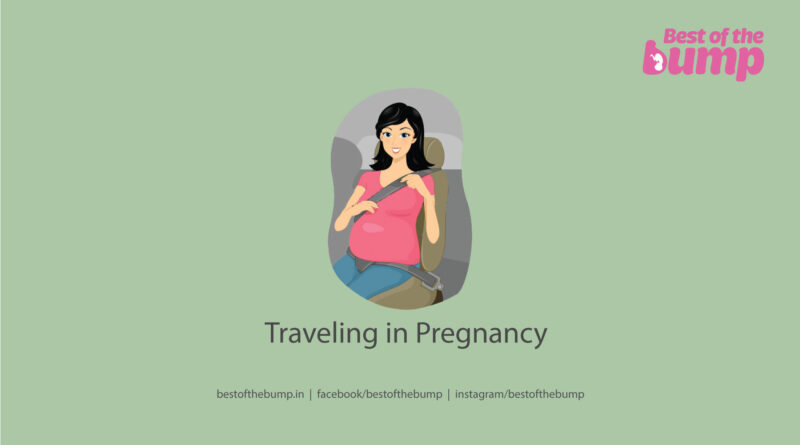Traveling in Pregnancy
Traveling in Pregnancy can be an enjoyable experience, but it requires careful planning and consideration to ensure the safety and well-being of both the expectant mother and her baby. Whether you’re traveling by air, road, or sea, certain precautions and guidelines should be followed to minimize potential risks. This article provides comprehensive tips and advice for pregnant women who wish to travel, covering topics such as the best time to travel, essential precautions, and specific tips for each mode of transportation. Always remember that the well-being of the mother and baby should be the top priority, so consulting with a healthcare provider before any travel plans is crucial.
Best Time to Travel During Pregnancy
Traveling in Pregnancy is essential for the health and safety of both the expectant mother and the baby. Generally, the second trimester, between 18 to 24 weeks, is considered the safest time to travel. During this period, the risks of miscarriage and preterm labor are usually lower compared to the first and third trimesters.
General Tips for Pregnant Women Traveling

Traveling in Pregnancy, regardless of the mode of transportation or destination, pregnant women should follow these general tips for safe and comfortable travel.
- Consult with Your Doctor: Before making any travel plans, schedule a checkup with your healthcare provider to ensure you have medical clearance for travel and address any concerns.
- Carry Relevant Documents: Keep a written record of your due date and any medical conditions to have on hand during your journey.
- Prenatal Records: Carry copies of your prenatal records and ultrasounds in case of emergencies or medical consultations.
- Medications and Prenatal Vitamins: Keep essential medications and prenatal vitamins in your purse or carry-on bag.
- Emergency Contact Information: Program your obstetrician’s phone number into your phone, and provide it to your travel companion. Additionally, have the contact information for a local doctor at your travel destination.
- Trip Insurance: Consider purchasing trip insurance to cover any unforeseen circumstances related to your pregnancy.
Airline Travel During Pregnancy
Traveling in Pregnancy, if you plan to travel by air during pregnancy, here are some specific tips to ensure a safe and comfortable journey.
- Check Airline Requirements: Traveling in Pregnancy Before booking a flight, check the airline’s specific policies regarding pregnant passengers, as some may have restrictions on flying beyond a certain gestational week.
- Seat Belt Safety: Wear your seat belt properly, positioning the lower strap across your lower lap and the shoulder strap between your breasts and over your shoulder, not over your abdomen.
- Move and Stretch: Take regular walks during long flights to promote blood circulation and reduce the risk of blood clots.
- Choose an Aisle Seat: Opt for an aisle seat for easy access to the restroom and stretching your legs.
- Hydration: Drink plenty of non-alcoholic and non-caffeinated beverages to stay hydrated during the flight.
- Airbag Precautions: Adjust the seat in case you’re sitting in front of an airbag, creating a safe distance between your chest and the airbag.
Road Travel During Pregnancy

Traveling in Pregnancy, if you’re planning a road trip while pregnant, follow these tips for a safe and comfortable journey.
- Seat Belt Safety: Always wear your seat belt properly, positioning it over your lower lap and upper thighs and between your breasts and over your shoulder.
- Take Frequent Breaks: During long car trips, take breaks every two hours to stretch your legs and increase blood circulation.
- Proper Airbag Use: Adjust the seat to create a safe distance between your chest and the airbag.
- Stay Hydrated: Drink plenty of water during the trip to prevent dehydration and discomfort.
- Avoid Heavy Lifting: Refrain from lifting heavy bags or objects to avoid strain on your body.
Cruise Traveling in Pregnancy

Traveling in Pregnancy, Cruising while pregnant requires extra consideration due to potential motion sickness and other concerns. Here are some tips to ensure a safe cruise experience.
- Seasickness Management: If you are prone to motion sickness, consult with your healthcare provider about safe ways to manage seasickness during the cruise.
- Hygiene Precautions: Cruise ships can be associated with stomach virus outbreaks, so prioritize good hygiene practices to avoid illness.
- Stay Hydrated: Drink plenty of water during the cruise, especially in warm weather, to prevent dehydration.
- Consult with Your Healthcare Provider: Before planning a cruise, talk to your healthcare provider about any potential risks or concerns based on your individual health and pregnancy status.
Traveling in Pregnancy can be a rewarding experience, but it requires careful planning and consideration of the mother’s health and the baby’s well-being. The second trimester is generally the safest time to travel, but it’s crucial to consult with a healthcare provider before making any travel plans. General tips for pregnant travelers, specific guidelines for air, road, and cruise travel, as well as precautionary measures, can help ensure a safe and enjoyable journey. By prioritizing comfort, safety, and proper planning, expectant mothers can embark on memorable trips during their pregnancy.
See this also.




